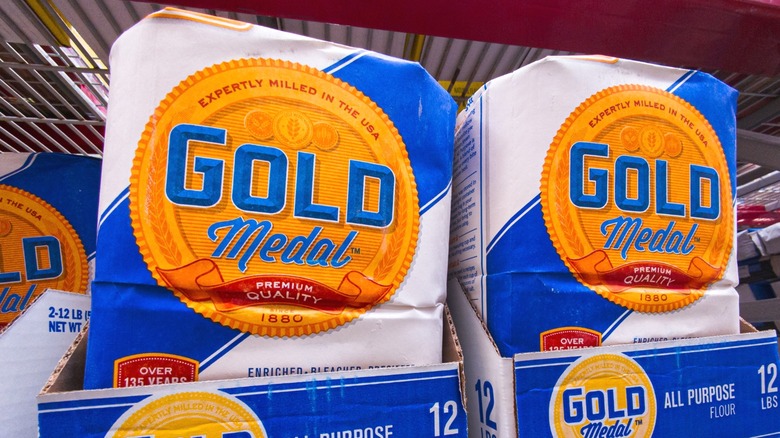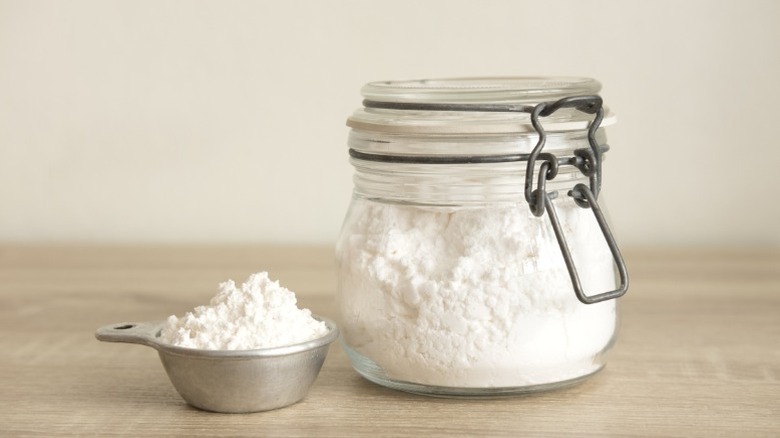Why Is Flour Sold In Paper Bags?
We live in a time of unprecedented scientific, technological, and logistical marvels. Less than 200 years after the invention of the lightbulb, we now carry small electronic squares in our pockets that contain all the world's knowledge. Specialty goods can be sent around the world before landing on your doorstep a few days later. And yet, despite these staggering advances, flour is still sold in paper sacks that rip and spill all over the place when you open them. Why is that? There are a couple of different reasons, but the main one is that the paper bag keeps the flour from absorbing moisture.
There are some foods we might want to keep moist. A box of donuts, for instance, needs to contain a certain level of moisture, or else the donuts will dry up and go stale. But flour, as you might expect from something called a "dry good," doesn't react well to too much moisture, which can cause it to spoil — or worse, get moldy. The paper bag allows that moisture to evaporate without lingering in the flour itself. Certain other flour brands, such as Blue Bird Flour, may sell their flour in old-fashioned sacks, which similarly keep things nice and dry.
People just expect flour to come in paper bags — and they often move them anyway
There are other reasons why flour still comes to us in paper bags. For one thing, it's a lot cheaper than using plastic, not to mention more environmentally friendly. For another thing, there's an element of self-fulfilling prophecy at play: Flour is sold in paper bags because consumers are used to buying it that way, and have come to enjoy the crinkly, tactile pleasures of using the paper bags while baking. (It's like how Spam still comes in those square little cans with the pull tab.)
It's true that paper bags are kind of a pain. They rip easily, leaking their contents onto your counter, and once you open the bag, you can't just roll it up to keep the flour fresh. But in that regard, the cheap, fragile quality of the paper bag is its own kind of blessing: it motivates us to pour it out into a flour jar for better storage. Whether you're using bread or all-purpose flour, a sealed jar keeps the flour fresh and makes it easier to measure out however much you might need when baking bread or cookies.

